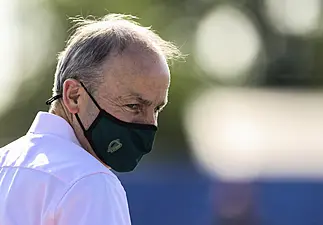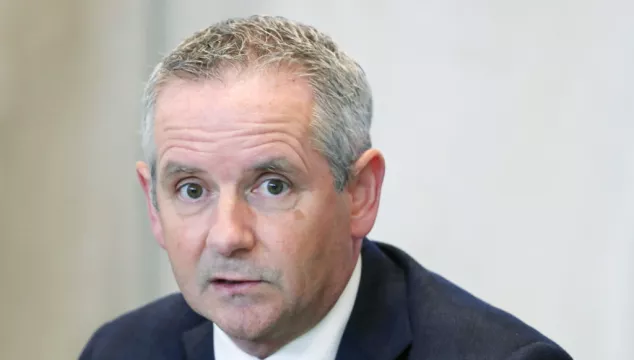The chief executive of the HSE has said action is needed from the public to alleviate pressure on the health service, as it emerged that 4,400 HSE staff were off work due to Covid-19.
“Our health system alone cannot get us out of this,” Paul Reid said, adding that it was now up to the public to control the situation through collective individual actions.
It comes as a further 3,680 Covid cases were confirmed in the Republic on Thursday.
On Thursday morning there were 543 Covid patients in hospital, including 97 in intensive care.
Speaking on RTÉ radio’s News at One, Mr Reid said that better resourced health systems elsewhere in Europe were also under pressure.
It was now up to the public to control the situation through collective individual actions, he said.
Ventilators
Nearly one third of intensive care beds were occupied by Covid-19 patients, with a further 250 on advanced respiratory support on non-invasive ventilators, he said.
The number of Covid patients in hospitals was up 20 per cent in one week, he said. There had also been an increase in seasonal and respiratory viruses while emergency departments had experienced a 20 per cent increase on pre-pandemic levels.
Hospitals were under significant strain, but outbreaks in nursing homes and congregated settings were down and this was probably due to the booster scheme.
There were 4,400 HSE staff off work because of Covid which was putting extra pressure on the system. The rollout of the booster scheme to healthcare workers would hopefully alleviate this pressure, said Mr Reid.
When asked about the winter plan, Mr Reid said it would be published “very shortly” possibly next week. “We are just finalising the budget, so it is very imminent.”
Aspects of the winter plan would include a range of initiatives such as increased access for GPs to diagnostic equipment, a greater role for the ambulance service, community intervention teams and access in emergency departments to diagnostic equipment to allow for triaging.
Contact tracing system
Mr Reid also defended the contact tracing system. He said that 184,000 laboratory tests had been completed last week, an average of 20,000 per day with 25,000 completed in one day. There was strong public support in the form of responses to the automated text system for listing close contacts.
The health system was not just about testing and tracing or vaccinations, he said, boosters would help, but it was important that people help in the form of their actions - that could have a huge impact.
“Our health system alone cannot get us out of this.”
On the issue of consultants and the controversial contract revealed recently, Mr Reid said that at present consultants were being interviewed on the basis of existing contracts. The aim for the HSE was to recruit more consultants.
Antigen testing

HSE teams are at present assessing the most appropriate use of antigen tests in school settings, he said. “We will be presenting options to the Minister next week on areas where it can add value.”
The booster campaign was making good progress with the over 80s cohort likely to be completed in the next week while the over 60s campaign had commenced at vaccination centres.
“We really need to relieve pressure on the health system. Boosters will be part of it, test and trace will be part of it, but we really all need to play our part in reducing the virus in circulation.”







